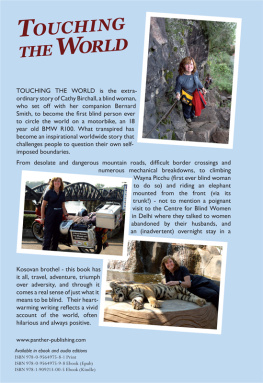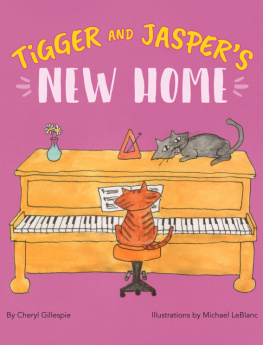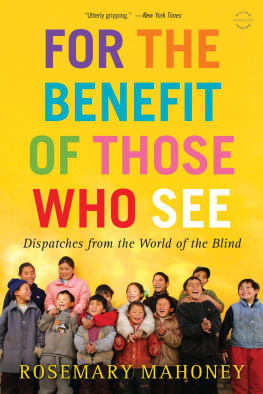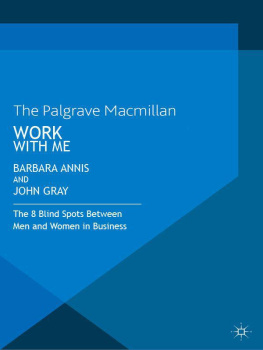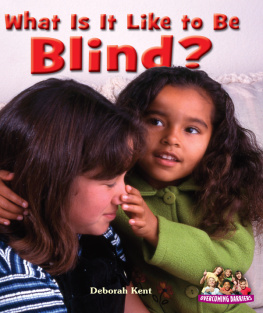Thank you for buying this ebook, published by NYU Press.
Sign up for our e-newsletters to receive information about forthcoming books, special discounts, and more!
Sign Up!
About NYU Press
A publisher of original scholarship since its founding in 1916, New York University Press Produces more than 100 new books each year, with a backlist of 3,000 titles in print. Working across the humanities and social sciences, NYU Press has award-winning lists in sociology, law, cultural and American studies, religion, American history, anthropology, politics, criminology, media and communication, literary studies, and psychology.
REFLECTIONS
THE HISTORY OF DISABILITY SERIES
GENERAL EDITORS: Paul K. Longmore and Lauri Umansky
The New Disability History: American Perspectives
Paul K. Longmore and Lauri Umansky
Reflections: The Life and Writings of a Young Blind Woman in
Post-Revolutionary France
Thrse-Adle Husson
translated and with commentary by
Catherine J. Kudlick and Zina Weygand
Reflections on the Physical and Moral Condition of the Blind by Mlle Adelle husson, young blind woman of Nancy. Title page of the original manuscript.
REFLECTIONS
THE LIFE AND WRITINGS OF A
YOUNG BLIND WOMAN IN
POST-REVOLUTIONARY FRANCE
THRSE-ADLE HUSSON
TRANSLATED AND WITH COMMENTARY BY
CATHERINE J. KUDLICK AND ZINA WEYGAND
NEW YORK UNIVERSITY PRESS
New York and London
2001 by New York University
All rights reserved
Library of Congress Cataloging-in-Publication Data
Husson, Thrse-Adle, 18031831.
Reflections : the life and writings of a young blind woman in
post-revolutionary France / Thrse-Adle Husson;
translated and with commentary by Catherine J. Kudlick
and Zina Weygand.
p. cm.(The history of disability series)
Includes text of the authors Reflections and of her Note on the
authors youth.
ISBN 0-8147-4746-9
1. Husson, Thrse-Adle, 18031831. 2. Blind
womenFranceBiography. 3. BlindConduct of life.
I. Kudlick, Catherine Jean. II. Weyagand, Zina. III. Title.
IV. Series.
HV1967.H87 H86 2001
362.41092dc21 2001003603
New York University Press books are printed on acid-free paper,
and their binding materials are chosen for strength and durability.
Manufactured in the United States of America
10 9 8 7 6 5 4 3 2 1
In memory of
Thrse-Adle Husson (18031831)
CONTENTS
Bonnie G. Smith
Catherine J. Kudlick and Zina Weygand
II. Reflections on the Physical and Moral
Condition of the Blind
Adle Husson
Thrse-Adle Foucault
IV. Reflections on a Manuscript, a Life,
and a World
Zina Weygand and Catherine J. Kudlick
FOREWORD
BONNIE G. SMITH
But what do I know about the history of the blind or, for that matter, blind people at all? I wondered when I received an invitation a few years back to discuss a paper about Adle Husson, whose 1825 Reflections and later Note on the Authors Youth you are about to read. There was the additional worry that these writings might not have all that much to offer because they came from someone whose experience of the world must surely have been limited by her blindness.
Oddly enough, these were precisely the responses people often directed against my own writing on women. What could studying womenso removed from power and influencepossibly have to teach us? Why read about someone new and different, far from my own knowledge, experience, and interests?
The eventual meeting with an obscure figure in history, Adle Husson, and her very talented discoverers, Catherine J. Kudlick and Zina Weygand, opened my eyes to the exciting world of disability studies. This interdisciplinary field, still in the making, takes the story of that bodily difference once called handicap beyond the domain of doctors and other caretakers writing about their patients. Instead, scholars, social commentators, and a range of blind, deaf, paraplegic, and other people whose bodies vary from what has been established as the norm have given fresh and challenging ways to understand human difference and normalcys relationship to it. These writers and activists remove the story of disability from the realm of science and place it squarely in the world of cultural values, social rules, aesthetic norms, and economic systemsthe very things at the heart of much exciting scholarship today.
One result is a new approach to literature, history, philosophy, and the arts that allows us to understand how memoirs, novels, works of art, and laws have insistently portrayed those with disabilities in ways that promote the importance of so-called normal people. Disabled characters in literature, for example, function to make sympathetic heroes more heroic and villains more villainous. The miser Scrooge in Charles Dickenss A Christmas Carol epitomizes wickedness because he harasses the family of the lame child Tiny Tim. In other cases villains are given disabled bodies as symbols of character flaws, thus making disability a sign of human depravity. Painting and film have depicted the horrors of war in the twentieth century by focusing on disabled bodies and mental impairments resulting from the experience of combat. Thus, far from being marginal to modern society, disabled people have been central to its most important intellectual projectsinvisible but highly visible. We are reevaluating our culture as a whole because of disability studies.
This book of Adle Hussons writings and the two scholars detective work that uncovered her intriguing story shows another and perhaps more important breakthrough of disability studies: a new value discovered in the writing, art, thoughts, and way of life of disabled people themselves. How far Hussons story appears from the portrayals of artists, writers, and social commentators, as she attempts to interpret for her readers the sensibility and inner life of a blind person. Instead of being rather vacant, as one sometimes supposes those without access to a full range of senses to be, Husson is full of ideas, an instructor trying to teach others not to treat blind people as fragile, partial, and without feeling, but rather to see them as full of capacity and sensibility. And here is one of many lessons one draws from her work: people with disabilities should not be objects, as science and other cultural values would have them, but subjects of their own stories and experiences. Husson proclaims the importance of bodily variety as well as her own perspective on her body and life as a blind person.
Husson also challenges the modern notions of citizenship and the relationships between the individual and the senses that emerged in the nineteenth century. Whereas modern citizens believed themselves to inhabit the realm of pure idealism and disembodied rationality, Husson provides a dignified, relentlessly physical self-description. She writes of stumbling feet, the blind persons carriage of the head, the relationship to friends not through visual scrutiny but through warm embrace and other tactile responses to human presence. Modern rationality is said to rest on the power of visual observation, with hearing and touch secondary qualities. Husson remaps and reprioritizes physical sensibility in a way that raises questions about modernity and its hierarchy of the senses. The question remains whether she challenges norms in a way that merely emphasizes her own exclusion from themher own differenceor whether there is something bold and resistant in her way of life.


